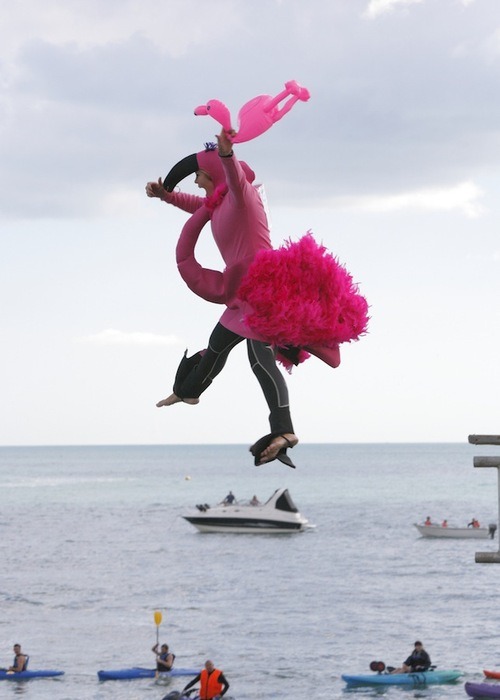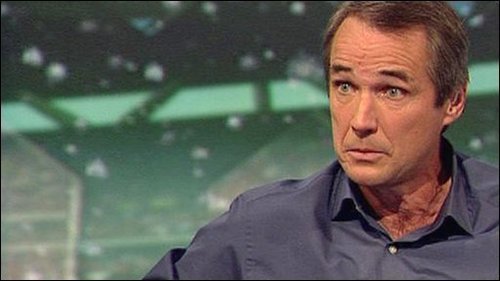Yesterday I was chastising myself for allowing over three months to pass without writing a blog. Lazy! Slack! Unfocused!
Then I remembered what I have been doing in that time.
29 second year A level students, each with a 3500 word coursework folder. Two drafts. That’s 203,000 words.
11 AS students plus 10 A2s resubmitting coursework, each with a 3500 word coursework folder. Two drafts. That’s another 147,000 words.
20 GCSE students, each with a 2400 word coursework folder. Another 96,000 words.
That’s 446,000 words. (You might want to check these figures, I do teach English, and maths is not my strong point.)
That’s almost 450,000 words read, annotated, moderated, and sent off to exam boards between Christmas and the beginning of May. Which would probably be fine, if that was all I was doing, but on top of ‘normal’ teaching, mock exam answers, and the fact that a lot of those coursework folders were submitted incomplete and required extensive and time consuming chasing up and nagging, I’ve spent an awful lot of time dedicated to my job, and not much time on anything else.
We’ve been discussing the work/life balance in the office (because if there is one thing teachers excel at when faced with a huge stack of marking, it’s procrastinating) and we don’t understand why there is no difference in either pay, or time owed, for staff who have to mark coursework on their subjects. If you teach a subject that is 100% exam based, this annual pilgrimage through the deepest annals of your energy reserves will be foreign to you. NB: subjects with coursework STILL have exams as well, so we have to do the same amount of ‘normal’ work as teachers on a 100% exam course – such as marking mock exam answers – AS WELL while we’re diving into our sea of coursework pain in a badly made birdman outfit. 
Every year I underestimate how stressful this whole process is, how much it takes out of me, and how much everyone around me suffers from my lack of attention, demented brain function and my inability to utter much more than a dribble by 10pm most nights. It’s surprising how easily I accept the 7 day working weeks with a stoic British ‘it’s just got to be done’ spirit, while obviously having a good moan with my colleagues – who are the only ones who can fully appreciate the pain of getting half way through marking a final draft before you realise the student hasn’t made the effort to make any of the improvements you painstakingly outlined to them on their first draft.
I can distinctly remember, at age 19, when I made the decision never to regret things in life. I’d spent several months lamenting the untimely passing of a doomed relationship with a man-child I thought I would love forever, and one day I suddenly realised with acute clarity that I was dying, that I’d been dying since the moment I was born, and that I’d just wasted the last six months of a life that was passing with incredible velocity pining over an absolute wanker. In one very short moment of clarity, I promised myself never to be such a dickhead again, but to live life to the full, carefully consider my options before making a decision and then refuse to allow regret to discolour any more precious time. If I’ve made an informed decision and it turns out to be wrong, I should learn from it and move on, not waste precious time wrapped in a remorseful shroud of despair. And on went my life in this fashion – until now.
How can I not regret the time lost to coursework marking each year? Of course there are positives attached to it, like the progress and success of individual students and the value of teaching. But since my son’s father gave him an iPad in March for his birthday, I’ve barely seen them. That iPad has been a Godsend during marking season – I don’t know how I would have coped if Sami and Zaki weren’t entertained while I was burning through HB pencils and getting tied up in registry tags. I regret that. I absolutely and utterly regret that I thought that at any point. If my life was short at 19, it’s even shorter now at 41 and one round of cancer in. What on earth am I doing missing out on precious, once in a lifetime moments? How is it OK that when I do have a moment of spare time, I’m too exhausted to do anything? Why is Nate taking them to the park and teaching them to play football? (Actually, that’s probably for the best. I don’t much like watching boys play in the park, it’s a hair-greying experience for a mother. Plus I am crap at football and think Alan Hansen looks like he’s from another part of the universe.) 
The coursework is now over. Some of my students have already sat their exams so I don’t need to teach them at the moment. This is what we refer to in the English office as ‘Golden Time’. It’s not really. It’s just a slightly lighter time for a couple of weeks while the exam timetable is in force, but after the last three months it has the illusion of being precious and somehow valuable. It’s when you can sometimes do shocking things like tidy your desk, or go home without taking anything with you to do that evening. During this time we only work the hours we are actually paid to work, and don’t come in early or stay late. We catch up on UCAS paragraphs for university applications, begin to plan next year’s courses, and debate whether The Bloody Chamber is better to teach than Frankenstein. We collate resources, find that missing form under the piles of crap we remove from our desks, and catch up on paperwork that we haven’t had time to do for months. The office stapler turns up again from underneath a pile of handouts on exam techniques. The intense pressure of the place we’ve just been in begins to fade, a bit like childbirth, so that we’ll do it again next year without being scared it might kill us.
What worries is me is that it might just do that. Stress has suggested links in many cancers, including breast cancer, although meta analysis of these studies shows it’s not a proven cause. However, it is not good for you. It does affect hormone levels and the healthy functioning of the immune system, and both of those things ARE directly linked to some breast cancers, mine included. I am much more conscious of stress post-cancer than I was before. But I can’t always control it. If you are working at your maximum capacity for long periods of time without a break, and managing to maintain a balance between your work commitments and your cortisol, it can sometimes only take one thing to send you skyrocketing into the stress stratosphere. I’m much better now at allocating myself time off and suppressing my fear of missing out. If I can spend time doing nothing, I will happily do it, and not feel like I’m being lazy or I should be doing something more productive with my valuable time. I’m all too aware of how flimsy and whimsical life is now, I don’t regret a second spent doing something relaxing but I do regret the precious time lost to stress and overwork. I don’t want to become one of those people Oscar Wilde was talking about when he said, “Nowadays most people die of a sort of creeping common sense, and discover when it is too late that the only things one never regrets are one’s mistakes.”
And that’s why I’m lying in bed at half 2 on a Saturday afternoon eating chocolate, attempting to crochet a goat, and listening to The Stone Roses.



